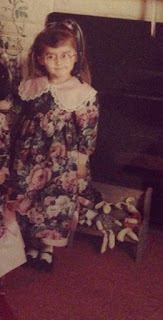What to Do When the
Storm Comes
My heart goes out to everyone who has been effected by these
heavy rains. We, in Scioto County, are now seeing the tumultuous
rains that have caused devastation in other counties and states. The only thing people can do is heed the information
and advice given to them by their local officials and weathermen, then prepare the
best they can.
One of the most difficult places to be in is to know a storm
is brewing, but not know exactly when it will hit, the level of force it will
have when it arrives, or the damage it will leave in it’s midst— whether the
storm comes in the form of a natural disaster…or a chronic disease.
When word began circulating there would be torrential rain
that could cause flood waters, the first thing most people did was watch the
weather to see what their meteorologist was predicting would happen. They gathered all of the information so they could
know what to possibly expect and how to prepare.
This is exactly what you should do if you’re diagnosed with
a chronic illness. Talk
with your doctor
about what symptoms are possible with your disease and what treatments would be
recommended. Research those treatment
options so you know what medications you're comfortable receiving. Glean from the advice and encouragement of
individuals who have been on a similar medical journey. The more information you have about what
could happen, the more prepared you will be to face
the storm.
Once people knew how to prepare for the potential flood
waters, then they took action. They may
have gathered supplies in case they had to remain at home for an extended
period of time due to bad roads. They
could have had to book a hotel to escape high flood waters that could
potentially cause damage to their house.
Or some maybe had to take the same precautions my household did. Which was make sure the sump pump was turned
on and working in the basement as well as keep an eye on the rising creek
waters around our property.
Whatever the action people had to take against the severe
weather is what lessened the the trauma it caused. The same rings true when you have a
disability. Trials are sure to come when
you have a chronic illness, but if you prepare, the heavy burdens will lessen
when difficult times come. The first
action I recommend and it’s the most powerful and effective preparation of all—
is prayer. Ask God for strength and perseverance to overcome the mountains
before you and I promise He will give you exactly what you need.
Secondly,
I urge you to write down everything you can about your medical care. There’s so much to recall and no one can
remember everything, especially during a crisis. What I suggest is creating a “Medical Album.” Simply purchase a regular picture album, take
3x5 cards and write your medical information on them, and then place them in
the plastic sleeves.
I have 3x5 cards that
list my physical stats, diagnoses, medications, allergies, surgeries, and every
physician with their contact information.
You may find a better system works for you when it comes to recording
your medical history, but the action of having important medical information on
hand for your doctors right when they need it, will decrease the impact of the
storms your disease may cause.
The most important preparation these flood victims did was
gather their loved ones close for support and to make sure they were safe. They
knew these were the people who knew them the best, and would “hold their arms
up” when the storm came.
Just as the most important action for the flood victims was
to hold tight to their loved ones, when you suffer from an illness, you
must do the same. It doesn’t matter how
old you are, when you have a disease, you need a support system.
When the burdens of your disease become too much to bear,
allow your family and friends to “hold your arms up” for you. Allow them to be an extra set of ears for you
at a doctor’s appointment. They may need to take care of you while you’re sick. Or you may need their advice when you’re unsure
of what treatment to take or what doctor to see. Whatever the case maybe, use your support system, because God gave you
exactly who He knew you would need when the waters begin to get high.
It’s difficult to know a storm is coming, but when it hits
what will really matter is how you react to it— whether it comes as a flood or a
disease. The key is to know what to do
when the storm comes. Get all the information you can. Use your resources and get
advice from others who understand. Then take that information and put it to
action so you can withstand the strongest of impacts. Lastly, cling to your support
system God gave you so they can help "hold your arms up," through difficult
trials. If you do these things then when
the fiercest of storms come in your life, you can look it directly in the eye
and boldly say, “Because of God’s strength- I am the Storm.”














